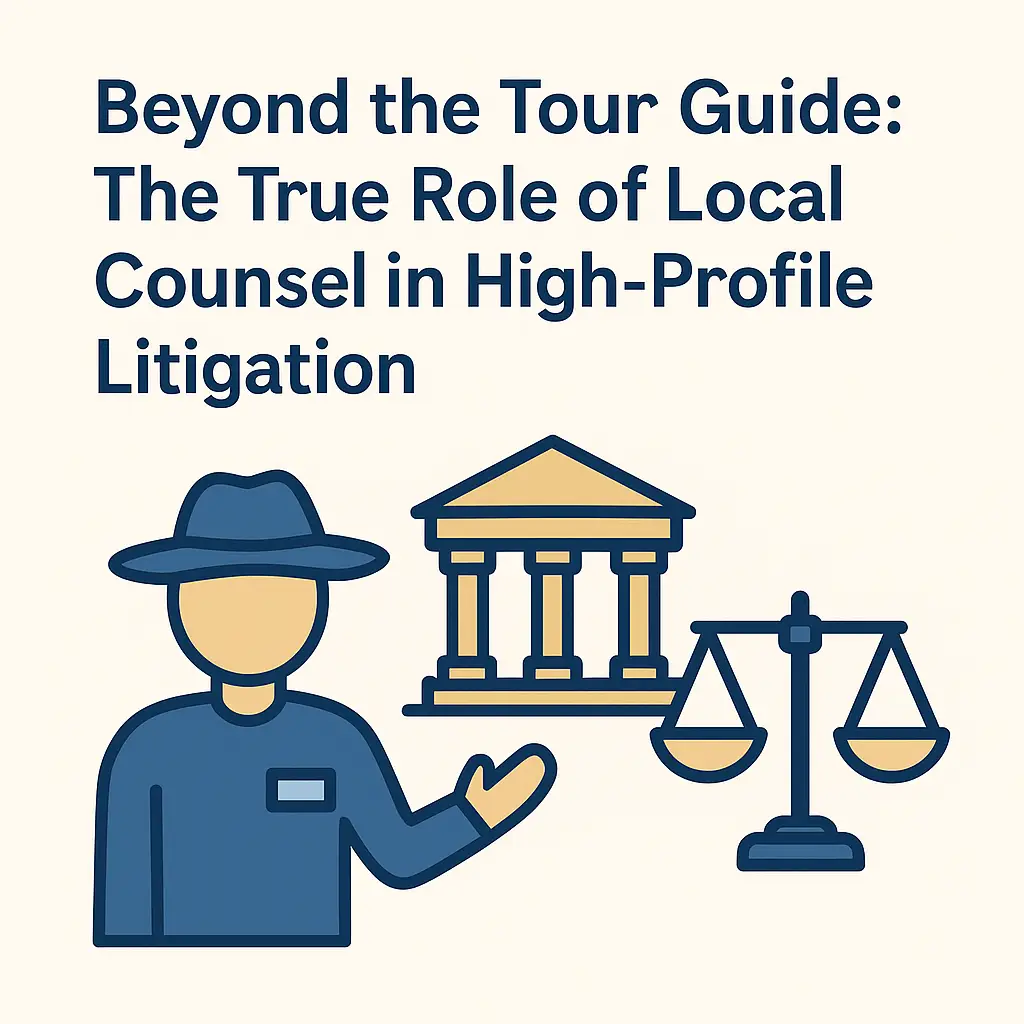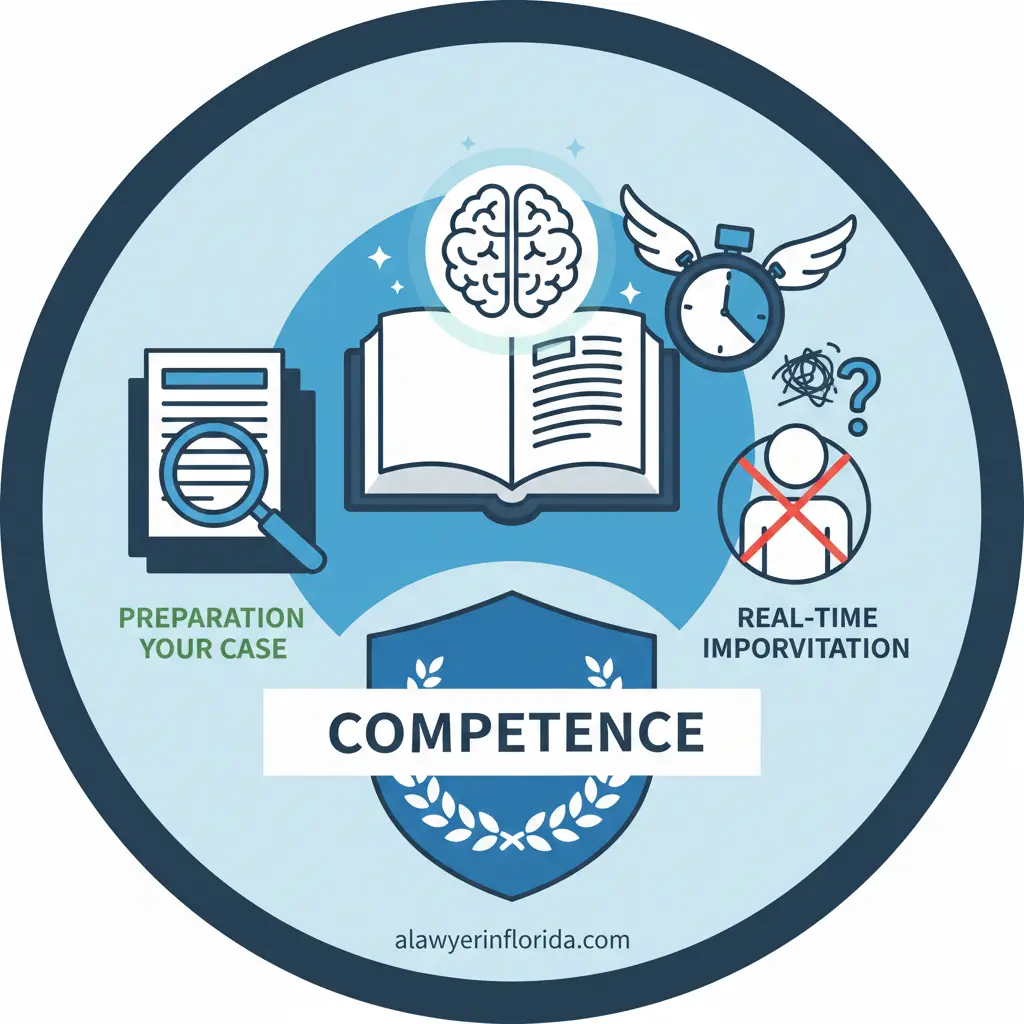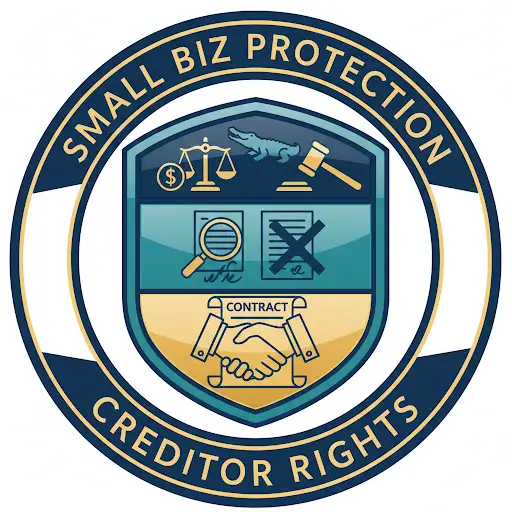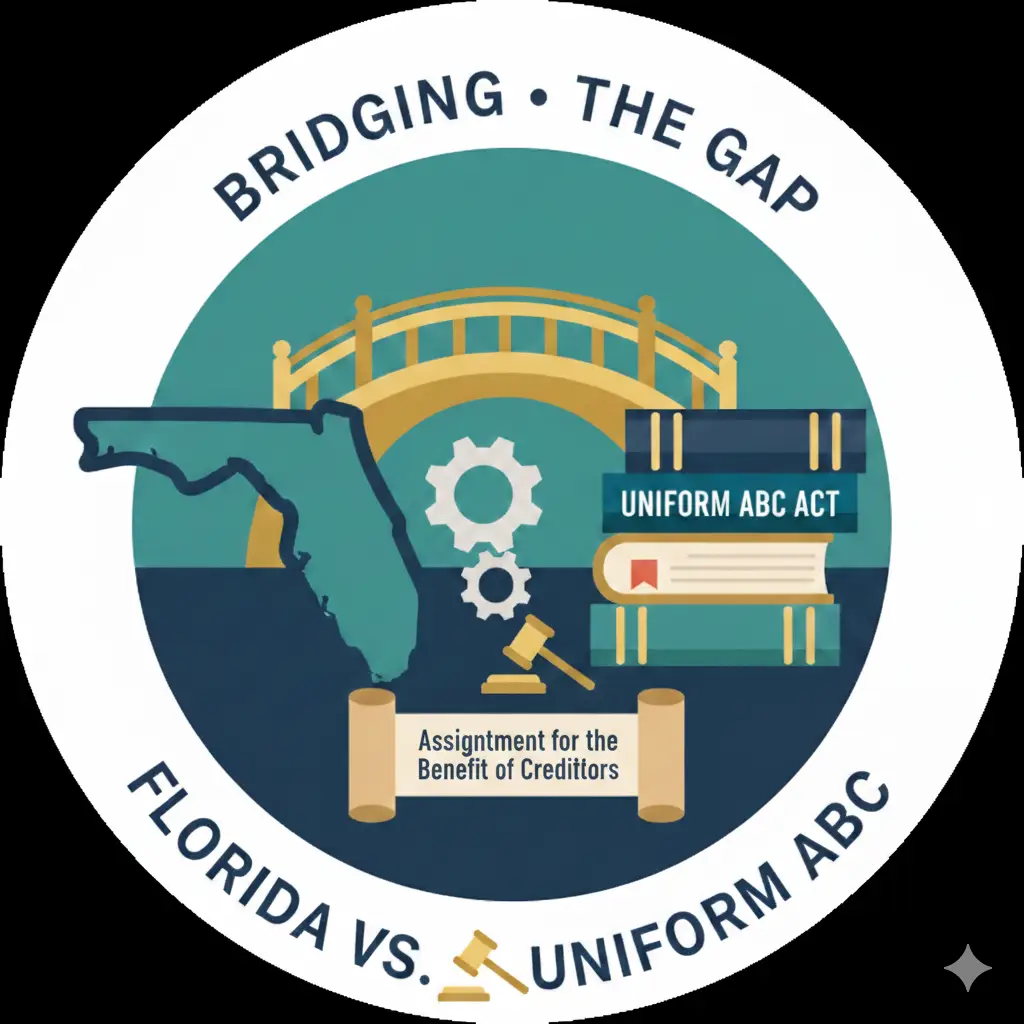Serving as local counsel in a high-profile case can at first seem like a supporting role, but reflection quickly shows how vital the position truly is. Too often, the perception is that local counsel acts as little more than the “tour guide”—advising out-of-state lawyers on courtroom customs, assisting with admissions pro hac vice, and ensuring documents are filed in the right format. While those functions are important, they only scratch the surface of the responsibility borne by local counsel.
The deeper lesson becomes clear once one recognizes that local counsel is not merely an advisor but an accountable officer of the court. Courts and opposing counsel alike usually look to the local lawyer as the point of authority for procedural compliance and professional conduct. Every filing, motion, and hearing is ultimately stamped with local counsel’s name, meaning mistakes or ethical lapses by out-of-state co-counsel often land squarely on the shoulders of the local representative.
As discussed in a recent post on the imposition of sanctions for filing a response that included AI-generated hallucinations, both local counsel and counsel for defendants were sanctioned, even though local counsel relied entirely on primary counsel to draft and verify the contents of the filing, and primary counsel admitted to the lapse being his own. In that matter, the court found violations of Federal Rule of Civil Procedure 11, 28 U.S.C. § 1927, local rules, and Florida Bar ethical requirements. It held both local counsel and co-counsel responsible for those violations.
A local counsel’s responsibility extends beyond paperwork. Local counsel must verify that all filings comply with the jurisdiction’s rules, often down to page limits, signature formats, and required certifications. In complex or high-profile matters, diligence becomes amplified because errors are magnified under sharper media and judicial scrutiny. Acting as if one were lead counsel, rather than an accessory, proves to be the safest mindset. That shift ensures that nothing is left unreviewed or assumed, and no shortcut compromises a client’s reputation or the integrity of the case.
There are also practical lessons in managing expectations. Out-of-state counsel may underestimate how strictly local rules are enforced or how differently a court prefers matters presented. Diplomacy becomes one of the most underrated skills—balancing professional pride of the lead team with local expertise on what will work best in front of the bench. Translating national strategy to align with local norms is a delicate but essential craft.
Ultimately, high-profile matters illustrate that local counsel’s role is less about being a peripheral guide and more about serving as the keystone that holds the structure upright. Embracing that responsibility—anticipating problems, ensuring compliance, and standing prepared to answer for the case as though serving as primary counsel—offers the truest professional safeguard and the strongest service to the client.
The foregoing is not limited to newsworthy cases. Any attorney acting as local counsel – without regard to the amount in dispute or the novelty of the legal issue – should abide by the foregoing to fulfill the obligation to zealously, ethically, and competently advocate for their client.
David’s Dicta: David Blansky and Dunn Law, P.A. served as local counsel to Georgia election workers, Ruby Freeman and her daughter, Wandrea “Shaye” Moss, who were defamed by former NYC Mayor Rudolph Giuliani and The Gateway Pundit website. The Firm domesticated the judgment awarded against Mr. Giuliani in Florida and supported the clients in their successful effort to dismiss the bankruptcy filed by The Gateway Pundit to insulate it from the claims of certain defamed parties.
Discover more from A Lawyer In Florida
Subscribe to get the latest posts sent to your email.





